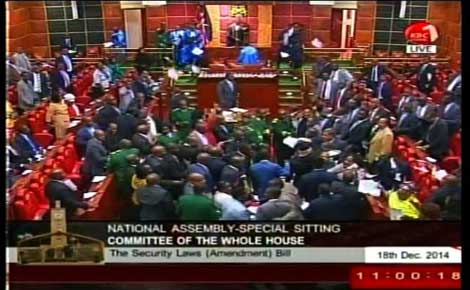 |
As Parliament resumes its sittings the day after tomorrow, one disturbing question on the lips of many legislators and lawyers is how parliamentary business will proceed under the environment of hostility witnessed in December.
Even more worrying is that the fist-fights, name-calling, tearing of order papers and a senator’s pair of trousers, pouring of water on colleagues, biting of an MP’s finger and the eventual passing of the Security Laws (Amendment) Bill under such chaotic circumstances may have set a bad parliamentary precedent.